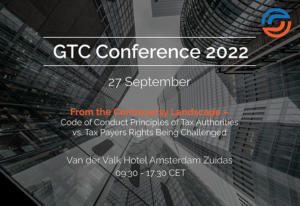ENSafrica
A company is defined in the Income Tax Act, 58 of 1962 (the Income Tax Act) as including any association, corporation, body corporate or company incorporated in South Africa, and constitutes a person for tax purposes and is subject to, inter alia, income tax and CGT.
For income tax purposes, a trust constitutes a person and may be constituted as a ‘trading trust’. Private trading trusts are subject to income tax and CGT as separate persons from the trustees, and income or capital gains are either taxed in the trust or in the hands of trust beneficiaries.
A partnership is a flow-through entity and not a separate taxpayer in its own right. Each partner must account for the tax consequences arising in respect of that partner’s proportionate interest in the assets of the partnership. Specific rules deal with the tax status of hybrid entities. If a foreign partnership is treated as a conduit for foreign tax purposes, the South African tax system will also treat it as a conduit.
Investors in a portfolio of a collective investment scheme (CIS) pool funds to participate in a range of investments. A CIS is recognised as a person for tax purposes. However, a CIS (excluding a CIS in property) is generally not liable to South African tax if it distributes income received by or accrued to it within 12 months of accrual (or the receipt in the case of interest). In such instance, the amount will be deemed to have directly accrued to the CIS participatory interest holders on the date of distribution. The portfolio of a CIS (excluding a CIS in property) is exempt from CGT.
The Income Tax Act also provides for a special dispensation for REITs (see below).Domestic corporate tax lawsBasis for taxation
From an income tax perspective, South Africa taxes residents on their worldwide income and non-residents on a source basis (i.e., non-residents are taxed if income is, or is deemed to be, from a South African source).
A company is a ‘resident’ for South African income tax purposes if it is incorporated, established or formed or has a place of effective management (POEM) in South Africa, unless such company is deemed to be exclusively a resident of another country in terms of a DTA. Subsidiaries of foreign companies incorporated, established or formed in South Africa, or that have their POEM in South Africa, will constitute a ‘resident’ and will be subject to tax in South Africa on a residence basis (i.e., on their worldwide income). Entities incorporated outside South Africa that ‘conduct business’ (as defined in the Companies Act, 71 of 2008) in South Africa must register an external company in South Africa (i.e., a branch).
The Income Tax Act does not contain a definition of the term POEM. In terms of an interpretation note issued by the South African Revenue Service (SARS), SARS regards POEM as the place where key management and commercial decisions that are necessary for the conduct of a person’s business are in substance made. Specific rules may apply to certain foreign investment entities that disregard specific activities in determining their POEM.
Companies are subject to tax at a rate of 28 per cent on income of a revenue nature and on capital gains at an effective rate of 22.4 per cent (subject to applicable DTA relief, if any).Source principles
The Income Tax Act contains a statutory definition of ‘source’ in respect of certain forms of income. Where the statutory source rules do not apply, it is necessary to consider whether the income would be from a South African source in terms of the general principles relating to the source of income (the key inquiry being the originating cause of the income).
In terms of the statutory source provisions, an amount is received or accrued to a person from a South African source, inter alia, if that amount:
- constitutes a dividend received by or accrued to such person;
- constitutes interest (as defined in the Income Tax Act) where it is attributable to an amount incurred by a resident (unless the interest is attributable to a permanent establishment that is situated outside South Africa), or is received or accrues in respect of the utilisation or application in South Africa by a person of funds or credit obtained in terms of an interest-bearing arrangement; or
- constitutes a royalty that is attributable to an amount incurred by a South African resident (unless that royalty is attributable to a permanent establishment that is situated outside South Africa).
Furthermore, in terms of the statutory source provisions, an amount is deemed to be from a South African source if:
- it arises from the sale of immovable property situated in South Africa, or interests therein, and that property is situated in South Africa; and
- an amount is received in respect of the sale of an asset (other than immovable property or interest therein) if the person is a South African resident, and the asset is not effectively connected to a permanent establishment of the resident outside South Africa and the proceeds from the asset sale is not subject to tax in the foreign country.
A permanent establishment is defined in the Income Tax Act with reference to the definition thereof in the Organisation for Economic Co-operation and Development’s (OECD) Model Tax Convention on Income and on Capital (as amended from time to time).
Interest received by a non-resident is exempt from income tax unless inter alia the debt from which the interest arises is effectively connected to a permanent establishment of the non-resident in South Africa. Dividends received by any person is exempt from income tax (subject to various exclusions).Calculation of taxable income
Taxable income, distinct from accounting profit, is determined broadly by deducting applicable deductions or allowances from the income of a taxpayer. ‘Income’ is ‘gross income’ less ‘exempt income’. ‘Gross income’ in the case of a resident, except for specific inclusions under the Income Tax Act, is an ‘amount, in cash or otherwise, received by or accrued to’ a taxpayer during a year of assessment, excluding ‘receipts or accruals of a capital nature’. Amounts must be included in gross income at the earlier of receipt or accrual.
In the absence of a specific deduction, expenditure will be deductible from income in accordance with the ‘general deduction formula’, which requires that expenditure and losses are actually incurred in the production of income, where such expenditure and losses are not of a capital nature. Expenditure or losses not laid out or expended for the purposes of trade may not be deducted. In general, a balance of assessed loss realized in a previous tax year and carried forward is allowed to be set off against taxable income, save for certain ring-fencing rules. While the general deduction formula excludes expenditure of a capital nature, numerous provisions permit deductions for a ‘capital allowance’.
Transfer pricing
Section 31 of the Income Tax Act contains the main legislative provisions relating to the transfer pricing rules. Broadly, the transfer pricing rules are triggered when any transaction, operation, scheme, agreement or understanding:
- constitutes an ‘affected transaction’, which is essentially a transaction entered into between connected persons that constitute:
- a resident and (1) a non-resident, (2) a permanent establishment of the non-resident in South Africa, or (3) another resident’s foreign permanent establishment; or
- a non-resident and a controlled foreign company of any resident; and
- results, or will result, in a tax benefit being obtained by a party to that transaction.
When the transfer pricing rules are triggered, section 31 requires both primary and secondary adjustments, which operate as follows:
- the primary adjustment requires the taxable income or tax payable by the person deriving the tax benefit to be calculated as if the transaction had been entered into on arm’s-length terms and conditions; and
- the secondary adjustment requires, where there is a difference between the actual terms and conditions and the arm’s-length terms and conditions applied in the calculation of a South African resident company’s taxable income, that the amount of such difference be deemed to be a dividend consisting of a distribution of an asset in specie to the foreign party.
In addition to the transfer pricing rules, transfer pricing documentation and certain record-keeping requirements may be required in certain circumstances.
Thin capitalisation
With effect from 1 April 2012, thin capitalisation has been dealt with in terms of the arm’s-length principle under the general transfer pricing rules in Section 31(2). In 2013, SARS published a draft interpretation note setting out its views on the application of the arm’s-length principle to issues of thin capitalisation. The draft interpretation note has never been finalised and remains the only guidance provided by SARS in this regard to date.
Limitations on the deductibility of interest
Section 23M of the Income Tax Act may apply in certain circumstances where interest is incurred in respect of a debt owed to a creditor in a ‘controlling relationship’ with the debtor and where the interest is not subject to South African tax in the hands of the creditor. The effect of the application of section 23M is to limit interest deductions to around 40 per cent of EBITDA, subject to an adjustment to account for the prevailing interest rate environment. Disallowed interest expenses may be carried forward to subsequent years of assessment. Section 23N contains similar rules that limit interest deductions in respect of debts incurred for purposes of funding certain ‘reorganisation’ and ‘acquisition’ transactions.Recharacterisation of interest in respect of equity-like debt
In addition to the above rules, which act specifically to limit deductions of ‘excessive’ interest, the Income Tax Act contains rules that target interest deductions in respect of certain debt instruments with equity-like features. In particular, sections 8F and 8FA have the effect of recharacterising ‘hybrid interest’ and interest in respect of ‘hybrid debt instruments’ as dividends in specie.Taxation of capital gains
Receipts and accruals of a capital nature are specifically excluded from the definition of gross income, and capital profits realised on the disposal of assets are subject to CGT. The term ‘of a capital nature’ is not defined in the Income Tax Act, but the courts have developed a number of tests to distinguish between the capital or revenue nature of an amount, the key test being the taxpayer’s intention. CGT is levied on the disposal of any assets held by a resident taxpayer. Non-residents are taxed on capital gains arising from the sale of immovable properties situated in South Africa, or interests therein, and assets attributable to a permanent establishment in South Africa. Assessed capital losses for a tax year cannot be set off against ordinary income. The loss is ring-fenced and can be set off against capital gains arising during the tax year or future tax years.
Domestic intercompany transactions
The Income Tax Act provides for ‘corporate rules’ in terms of which certain transactions undertaken within groups of companies can be implemented so that the tax consequences otherwise resulting from the transactions are deferred or rolled over until a later time. Central to the group relief measures is the definition of a ‘group of companies’, which is essentially a 70 per cent shareholding.
Broadly speaking, such rollover relief is available in respect of:
- asset-for-share transactions;
- amalgamation transactions;
- intra-group transactions;
- unbundling transactions; and
- liquidation distributions.
The rules relating to the above reorganisation transactions are fairly complex and their application to transactions with a cross-border or non-resident elements require careful consideration. Anti-avoidance rules are applicable in each reorganisation transaction, and may include limitations on the disposal of assets transferred as part of a tax-deferral transaction, or temporal limitations on the de-grouping of persons involved in deferral transactions involving groups of companies.
A company must disregard any capital loss determined on the disposal of an asset to a company that constitutes a connected person or to a company that forms part of the same group of companies as the disposing company.
There are also provisions dealing with value-shifting arrangements that will, generally speaking, be triggered where a person (a company) retains an interest in a company, but following a change in rights or entitlements of interests in the company, the market value of the interest of that company decreases and the value of the interest of a connected person held in the company increases, or a connected person acquires an interest in the company.
No dividends tax withholding obligations arise where the beneficial owner of a dividend forms part of the same group of companies as the company that paid the dividend. STT will not be payable on the transfer of shares in respect of a transaction which constitutes an ‘intra-group transaction’ as provided for in the ‘corporate rules’ provisions. Donations tax will not be payable in respect of a donation made by a company to another resident company forming part of the same group of companies as the company making the donation.
Withholding taxes
Dividends tax is imposed at the rate of 20 per cent on dividends paid by South African resident companies (other than an HC), or in respect of cash dividends paid by non-resident companies if the share in respect of which that cash dividend is paid is listed on a recognised South African exchange (such as the JSE). Exemption from dividends tax applies where the beneficial owner of a dividend is, inter alia, a South African company or a non-resident if the dividend constitutes a cash dividend declared by a non-resident company listed on the JSE. The rate of dividends tax withheld may be reduced in terms of an applicable DTA.
Interest that is paid to or for the benefit of any foreign person to the extent that the interest so paid is from a South African source is subject to interest withholding tax at the rate of 15 per cent, subject to applicable DTA relief, if any. Exempt from the interest withholding tax is any amount of interest that is, inter alia, paid by the South African government, any bank or interest paid in respect of listed debt. Also exempt is any amount of interest paid to a non-resident in respect of debt owed by another non-resident (subject to certain exclusions). The interest withholding tax is a final tax.
South African sourced payments to non-residents constituting a ‘royalty’ are subject to a 15 per cent withholding tax (subject to applicable DTA relief, if any). There are certain exemptions. The royalty withholding tax is a final tax.International tax
Taxation of foreign-sourced income
As noted above, South Africa taxes residents on their worldwide income.
Foreign dividends are taxed in the hands of residents, subject to certain exemptions. A resident will not be taxed on foreign dividends if that person qualifies for the ‘foreign dividend participation exemption’ (i.e., where the shareholder holds at least 10 per cent of the total equity shares and voting rights in the company declaring the foreign dividend, subject to certain provisos). In line with the dividends tax regime, foreign dividends that do not qualify for this exemption will be subject to tax at a minimum rate of 20 per cent.
The CFC regime
A CFC is defined as any foreign company with more than 50 per cent of the participation rights directly or indirectly held, or more than 50 per cent of the voting rights directly or indirectly exercisable, by one or more residents. ‘Participation rights’ is defined as the right to participate in all or part of the benefits of the rights (other than voting rights) attaching to a share or any interest of a similar nature in that company. Where no person has any such right in the foreign company or no such rights can be determined for any person, participation rights will mean the right to exercise voting rights in that company. Specifically included in the definition of CFC is any foreign company where the financial results of that foreign company are reflected in the consolidated financial statements, as contemplated in IFRS 10, of any company that is a resident.
Where a foreign company qualifies as a CFC for the entire foreign tax year, an amount equal to the proportional amount of the net income of that CFC for the entire foreign tax year will be included in the income of any South African resident (other than an HC) who holds any participation rights in such CFC in relation to its proportionate participation rights in the CFC. This is subject to certain limited exemptions.
In terms of the CFC regime, the ‘net income’ of CFC must be determined in accordance with the relevant provisions of the Income Tax Act on an annual basis and a proportional amount thereof must be included in the income of the resident that directly or indirectly holds ‘participation rights’ in the CFC.DTA relief
Residents who pay foreign taxes may qualify for relief in terms of the provisions of a DTA. The Income Tax Act provides for special rebates or unilateral tax credits that may apply in respect of foreign taxes paid by residents that are not reduced by a DTA.
Activities and tax incentives in South AfricaREITs
The Income Tax Act provides for a special dispensation for resident companies, the shares of which are listed on a recognised South African exchange as shares in a REIT as defined in the listing requirements of the relevant exchange, which, inter alia, invest in immovable property and shares in immovable property holding companies, and earn rental and dividend income in respect of such investments. Broadly speaking, although as a company a REIT is taxed at the rate of 28 per cent on its taxable income, in determining its taxable income, a REIT is entitled to deduct ‘qualifying distributions’ (e.g., dividends paid to shareholders) if certain specific requirements are met. Capital gains and losses realised by REITs on the disposal of certain assets, such as immovable property and shares in a company that is a REIT or a property company, must be disregarded for CGT purposes. From an income tax perspective, dividends distributed by a company that is a REIT will not qualify as exempt dividends and are taxable in the hands of South African tax-resident REIT investors (in accordance with the tax dispensation applicable to them), but qualify for an exemption from dividends tax. Dividends paid to non-resident investors are exempt from income tax, but are subject to dividends tax.VCCs
A tax incentive dispensation exists to encourage the investment into VCCs by way of a tax deduction in the hands of any person who actually incurs expenditure in respect of the acquisition of any VCC share before 31 June 2021. VCCs are required to utilise their funding to acquire and hold ‘qualifying shares’ in ‘qualifying companies’, approved as such by the Commissioner for SARS (Commissioner). Qualifying companies essentially constitute entities in the small to medium-sized business sector, as well as junior mining companies. There are limitations on the percentage shares that may be held by any one taxpayer in a class of shares issued by a VCC, as well as anti-avoidance rules to prevent abuse of the VCC regime.
HC regime
The HC regime encourages international companies to establish headquarters in South Africa as a gateway for investing into Africa. The HC regime is applicable to resident companies, provided certain requirements are met. Outbound payments of dividends are exempt from the dividends tax. Interest and royalties paid to a foreign person by a HC will be exempt from the relevant withholding taxes provided certain requirements are met. Receipts by the HC are subject to the corporate tax rate of 28 per cent, but a general exemption may apply to foreign dividends received by a resident shareholder holding more than 10 per cent if the shares in a foreign company declaring the dividend (subject to certain exclusions). An HC will not be subject to CGT upon the disposal of equity shares in a foreign company where it, immediately before the disposal, held at least 10 per cent of the equity shares. An HC is exempt from the CFC provisions. Although generally subject to transfer pricing rules, specific exclusions apply to an HC providing funding or lending certain intellectual property to foreign entities in which it holds 10 per cent of the shares.ii Common ownership: group structures and intercompany transactionsOwnership structure of related parties
Tax grouping and loss sharing
South Africa does not allow for taxation on a group or consolidated basis. Each company in the group is a taxpayer in its own right. Presently, transactions involving group companies may sometimes qualify for group relief or trigger certain anti-avoidance rules.iii Third-party transactionsSale of shares or assets for cash
Assets or shares acquired and held by a company on revenue account will trigger tax on income at disposal, which will be subject to tax at a rate of 28 per cent. Where assets or shares held on capital account are disposed by a company, a capital gain realised on the disposal, calculated as the difference between proceeds on disposal (generally equal to the purchase consideration received), less the base cost in the asset (generally the historic acquisition cost), will be taxed at an effective rate of 22.4 per cent. Equity shares (as defined) held for at least three years are deemed to be held on capital account.
Paragraph 64B to the Eighth Schedule to Income Tax Act contains a participation exemption in terms of which, a person (other than a HC) must disregard any capital gain or loss in respect the disposal of equity shares held in a foreign company to a non-resident (that is not a CFC), where that person alone or together with any other person forming part of the same group of companies, held that interest of at least 10 per cent of the equity shares and voting rights in that foreign company. Generally, the interest held in the foreign company must have been held for at least 18 months before disposal.
Certain adverse consequences may arise for a company that received a dividend exempt from dividends tax from a company in which it held a ‘qualifying interest’ (a 50 per cent shareholding or 20 per cent shareholding if there is no majority shareholder), if such company disposes of the shares in the company within a period of 18 months of the receipt of the exempt dividend. These rules may also be triggered where a company disposes of shares within a period of 18 months from acquiring such shares under the ‘corporate rules’ provisions.
The transfer of shares in resident companies and non-resident companies listed on a recognised South African exchange are generally subject to STT, calculated at the rate of 0.25 per cent of the ‘taxable amount’ (typically the higher of the purchase consideration or market value of the transfer).
Filing of tax returns and tax payment
Companies automatically fall into the provisional tax system – a system that requires taxpayers to provide for their final tax liability by paying at least two amounts in the course of the year of assessment that coincides with the financial year of the business. Final liability, however, is determined upon assessment:
- the first provisional tax payment must be made within six months of the commencement of the year of assessment;
- the second payment must be made no later than the last working day of the year of assessment;
- the third payment is voluntary and may be made:
- within seven months of the year of assessment, where the assessment ends on the last day of February; and
- within six months of the year of assessment, for any other year of assessment;
- annual income tax returns must be completed and submitted within 12 months after the financial year end of the company;
- if the company employs employees in South Africa, it will also be subject to payroll taxes, which are payable on a monthly basis. The payment must be made within seven days after the end of the month during which the amount of payroll taxes was deducted or withheld; and
- companies may also be subject to VAT on the supply of goods and services (as detailed herein). The VAT return and payment must be submitted by no later than the 25th day of the month following the end of the tax period. Alternatively, where a vendor makes use of the SARS electronic filing system (eFiling), such vendor will be able to make payment and submit its return electronically by the last business day of the month after the end of its tax period. A tax period normally ends on the last day of the month, but the vendor may choose to end it on any other fixed day that is within 10 days of the last day of that month.
In addition, a person that has paid a dividend must submit a dividends tax return in respect of that dividend to SARS by the last day of the month following the month during which the dividend is paid.
Collection and enforcement
SARS, an administratively autonomous organ of the state, collects and administers all national taxes, duties and levies. There is no regular audit routine cycle. SARS uses risk profiling to identify taxpayers for audit and also selects taxpayers on a random basis for audit.
If a taxpayer believes that an assessment, decision or determination it has received is incorrect, dispute resolution processes are available in terms of the legislation that SARS administers. The dispute resolution process commences either when the taxpayer requests SARS’s reasons for an adjustment, or when the taxpayer lodges an objection to the assessment or decision that it has received. Where the taxpayer is dissatisfied with a decision by SARS with regard to any objection, the taxpayer may file an appeal against the decision. The matter will be referred to alternative dispute resolution if the taxpayer has requested this in its notice of appeal and the Commissioner agrees thereto.
In certain circumstances, if the alternative dispute resolution process fails, the dispute may be referred to the Tax Board, which is a less onerous procedure than going to court. The procedures before the Tax Board are relatively informal. Where the dispute may not be referred to the Tax Board, it will proceed to the Tax Court, a special court that has similar status to the High Court. If either party is dissatisfied with a decision of the Tax Court, they can appeal to the full bench of the High Court or the Supreme Court of Appeal.
In terms of the Tax Administration Act, 28 of 2011, the obligation to pay tax, and the right of SARS to receive and recover tax, will not be suspended by an objection or appeal or pending a decision of a court of law pursuant to an appeal (the ‘pay-now-argue-later’ principle). It is possible in certain circumstances and upon proper motivation to request from SARS that payment of the disputed tax or a portion thereof be suspended.iv Indirect taxes
VAT
VAT at the standard rate of 15 per cent applies to the supply of taxable goods and services within South Africa by registered vendors conducting an enterprise, subject to certain exemptions and exclusions. Imported goods are subject to VAT at the standard rate, while imported services are subject to the standard rate in circumstances where they are not used or consumed in the making of taxable supplies. Certain supplies are zero-rated, while other supplies are exempt from VAT (such as certain financial services and the letting of residential accommodation). In general, vendors are entitled to input credit deductions to the extent that inputs are incurred in the making of taxable supplies.
All persons (including non-resident persons) that carry on an enterprise in South Africa and supply taxable goods or services (including ‘electronic services’), the value of which exceeds 1 million rand in a 12-month period, are required to register as VAT vendors in South Africa. It is anticipated that as of 1 April 2019, the definition of ‘electronic services’ for purposes of the South African VAT Act will be expanded. This amendment (which will likely be implemented in its current form) will significantly expand the scope of South African VAT to include platform and similar services supplied by non-resident persons to recipients in South Africa. One of the consequences is that in certain circumstances, cross-border (including intra-group) services supplied by non-resident persons to recipients in South Africa by way of any electronic means or the internet will be subject to VAT in South Africa.
Customs and excise duty
Customs duty at various rates is payable on certain goods imported into South Africa. South Africa has free trade agreements with the European Union, European Free Trade Association, Southern African Development Community and Mercosur that offer preferential customs duty rates on goods originating in these territories. South Africa is also a member of the Southern African Customs Union.
Excise duty is charged on certain locally produced and similar imported goods, for exampl, alcohol and tobacco products, motor vehicles, and television sets.





